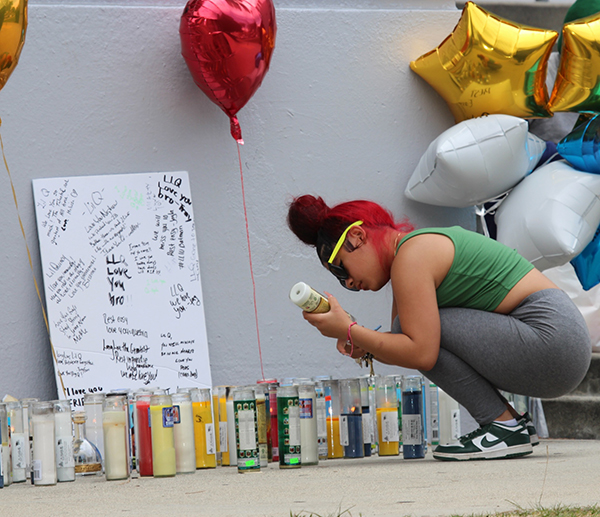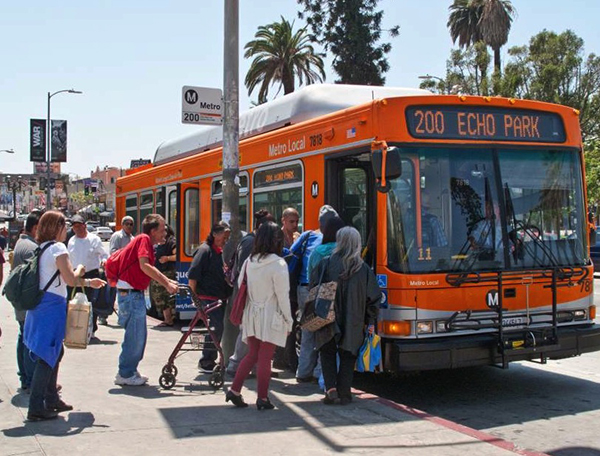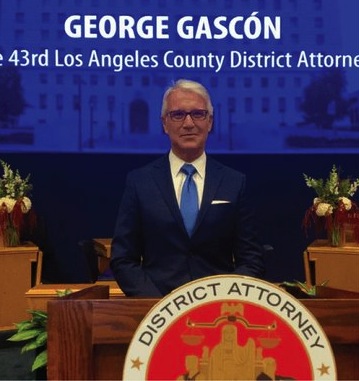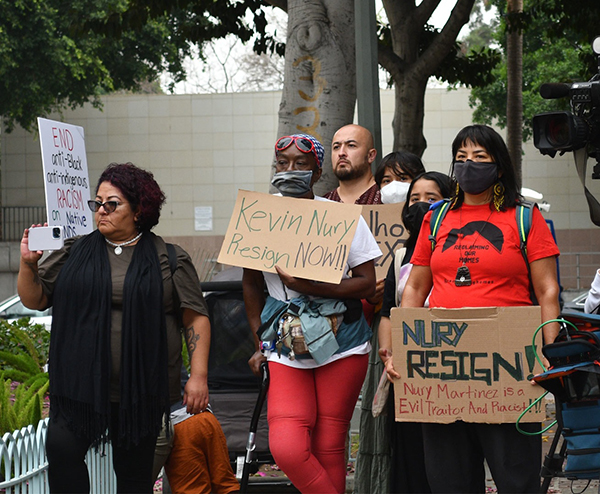Whittier’s Dutra takes the helm as Metro gears up for Olympics, World Cup

LOS ANGELES — Whittier City Councilman Fernando Dutra received the board gavel from county Supervisor Janice Hahn July 9 during the annual Metropolitan Transportation Authority’s State of the Agency address at Union Station, where he pledged to build a transit system that is reliable and efficient for residents across the region.
Toward the end of the hourlong event, Hahn passed the gavel to Dutra as those in attendance applauded. The board chair serves a one-year term from July 1 to June 30, rotating among the Los Angeles mayor, a county supervisor and a City Selection Committee member.
Dutra has served on the Metro Board of Directors since 2021 and the Whittier City Council since 2012. He is president of Allwest Development Company and holds general building contractor and engineering licenses.
“We want transit that works, is reliable and efficient, and is worthy of the people that we serve — and that’s what we’re going to deliver,” Dutra said. “As chair, my priorities are grounded in that vision.”
Dutra said he will focus on completing major expansion projects, including the Southeast Gateway Line, the Foothill and D (Purple) Line extensions and two projects in the San Fernando Valley.
He added that Metro is not just a train and bus agency but also manages freeway projects he looks forward to advancing.
“[Metro] must deliver countywide for every community we serve,” Dutra said. “That includes investing in our local economy by making sure that locally based companies, especially in engineering, architecture and construction companies aren’t just invited to the table. They deserve a real stake on the work that’s ahead.”
Metro Director and county Supervisor Kathryn Barger told City News Service in an email that leading one of the largest transit agencies in the nation comes with many of the same pressures and politics as it did 20 years ago.
Barger, who served as an aide and later as chief of staff to former county Supervisor Mike Antonovich, recognized that the stakes are “undeniably higher now.”
“Metro’s leadership team has set a bold vision and Metro is responsible for delivering the largest construction portfolio in its history due to Measure M,” Barger said in an email. “With increased public scrutiny and urgent regional challenges, like homelessness and safety, Metro’s leadership must be more accountable than ever.
“Our collective success hinges on staying focused, transparent and delivering tangible improvements for the people of Los Angeles County. With new Chair Fernando Dutra at the helm and Metro’s executive team, we are in good hands for the year ahead. I am confident that we will deliver,” she added.
Hahn said her tenure was about keeping promises, including riding Metro regularly to understand rider experiences.
“Some days, the ride was smooth,” Hahn said. “Some days, that Silver Line bus really bumped and begged its way down the street, but riding the bus gave me ideas for policies that would benefit our riders.”
She highlighted the transit agency’s recent accomplishments, such as opening the LAX Metro Transit Center and the Rail-to-Rail Active Transportation Corridor in South Los Angeles, as well as enhancing its public safety network.
Metro is establishing a new public safety department led by former San Francisco Police Chief Bill Scott. The agency implemented safety measures including Tap-to-Exit expansion, weapons detection systems, taller fare gates, a Transit Watch 3.0 app and more ambassadors and security personnel.
The agency took steps to improve public safety after several high-profile violent crimes on its system.
Metro CEO Stephanie Wiggins emphasized that the agency’s success comes from addressing the needs of people.
“When this family commits to a common goal, and we put people first, we find new ways to work together and we get things done,” Wiggins said.
Assaults on the system were down by more than 66% year-over-year as a direct result of the renewed focus on public safety, according to Wiggins.
Additionally, the agency reported a 55% reduction in crime such as vandalism, fights and harassment on certain bus lines.
The agency’s efforts resulted in a more than 53% increase in ridership over the past four years and customer satisfaction rose to 87% in a recent rider survey, Wiggins said.
As Metro prepares for the 2026 World Cup, followed by the 2027 Super Bowl and the 2028 Olympic and Paralympic Games, Wiggins noted they will be ramping up service to handle visitors from around the globe.
For the World Cup, she expects the system to run more than 300 additional buses, and later establish a temporary bus system that will add up to 2,700 buses for the Olympics.
“We’ve already started preparing to meet this moment,” Wiggins said. “Our mobility concept plan is being implemented. We have already identified more than 700 borrowed buses from other transit agencies.”
Among future plans, Wiggins noted customers will soon be able to use credit or debit cards to pay their boarding fee, similar to a TAP card. The agency is expected to roll out an “all-in-one app” for everything.
“We are not doing this just for the World Cup, the Super Bowl or the 2028 Olympic and Paralympic Games,” Wiggins said. “We’re doing this for you — for every L.A. County resident who helped us build this system and who deserves a better, cleaner, safer, easier alternative to sitting in traffic.”





